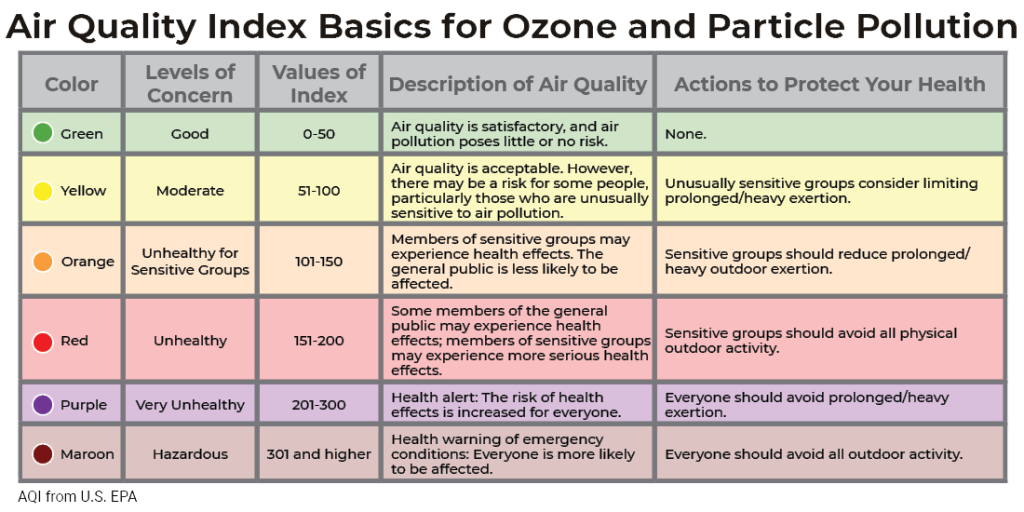DHHS/NDEE Issues Smoke Advisory for Eastern and Central Nebraska
Issued jointly from
Department of Water, Energy, and Environment
Nebraska Department of Health and Human Services
News Release

DHHS/NDEE Issues Smoke Advisory for Eastern and Central Nebraska
Smoke associated with Canadian wildfires may affect the air quality in Nebraska.
An advisory of possible Moderate (yellow category) to Unhealthy (red category) Air Quality Index (AQI) impacts may occur in Eastern and Central Nebraska, potentially affecting Omaha, Lincoln, Fremont, Grand Island, and Kearney, the afternoon of August 1, 2025, through the late afternoon of August 2, 2025.
During Moderate AQI (yellow category) conditions, those who are unusually sensitive to particle pollution may experience health effects. When conditions rise to the yellow category, those who are unusually sensitive are advised to consider shortening outdoor activities and reducing the intensity of these activities. Symptoms such as coughing or shortness of breath are signs to take it easier.
During Unhealthy for Sensitive Groups AQI (orange category) conditions, members of sensitive groups may experience health effects. Sensitive groups include people with heart or lung disease, older adults, children and teenagers, pregnant women, and outdoor workers. When conditions rise to the orange category, sensitive groups are advised to reduce prolonged or heavy exertion and avoid intense outdoor activities.
During Unhealthy AQI (red category) conditions, some members of the general public may experience health effects and members of sensitive groups may experience more serious health effects. Sensitive groups include people with heart or lung disease, older adults, children and teenagers, pregnant women, and outdoor workers. When conditions rise to the red category, everyone is advised to avoid prolonged or heavy exertion and those in sensitive groups should consider moving activities indoors or rescheduling.
Advisories are issued for areas of anticipated impact by notifying the media and local health departments and posting information on the Nebraska Department of Health and Human Services (DHHS) and the Nebraska Department of Water, Energy, and Environment's (DWEE) webpages and social media accounts. These advisories provide information to the public on the anticipated impacts and air quality and health resources to help citizens protect their health and minimize exposure to smoke.
The state monitors smoke levels and weather conditions to determine when impacts to air quality are anticipated. Advisories are based on data from the National Weather Service (NWS), smoke plume modeling, and from ambient air quality monitors located in Omaha, Blair, Bellevue, Lincoln, Beatrice, Grand Island, and Scottsbluff.
The following Air Quality Index (AQI) is used to describe air quality and suggest actions individuals can take to protect their health. This AQI is used nationally and is available in real-time for Nebraska by visiting https://www.airnow.gov. For AQI readings at individual ambient air monitors and sensors, please visit https://fire.airnow.gov/.

For more information on smoke awareness, visit NDEE's website at https://dee.nebraska.gov/air/smoke-awareness-nebraska
For more information on wildfire burn activity and a smoke outlook, visit NDEE's website at https://dee.nebraska.gov/wildfires-and-impacts-nebraska
For AQI readings at individual ambient air monitors and sensors, please visit https://fire.airnow.gov/.
